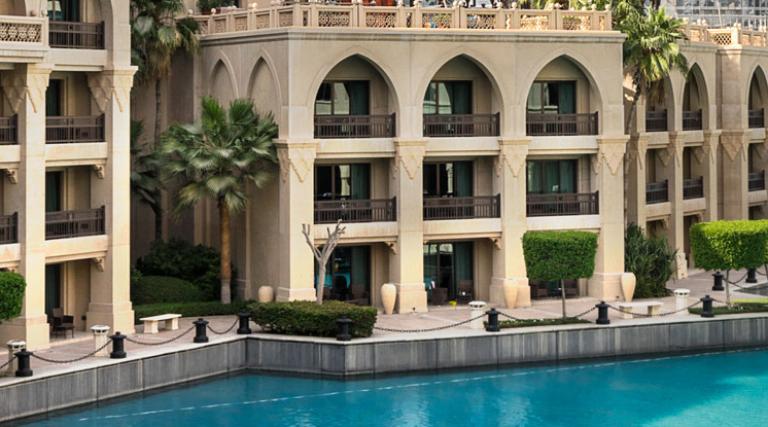A complete guide to education in Dubai for UK families
A complete guide to education in Dubai for UK families, covering school types,…
Read MoreDubai has one of the fastest growing economies in the Middle East and thanks to its prime geographical location and excellent global trade relations, it looks set to continue to go from strength-to-strength. It’s the reason why thousands of new businesses choose to set up in the city every year, with the option to become an onshore, offshore or free zone entity.
Here we go into more detail about what is involved in setting up a business in Dubai, including banking, taxation, licensing and much more.
What are the benefits to setting up a business in Dubai?
Every year thousands of new companies set up operations in Dubai and in doing so they can enjoy benefits such as:
Setting up a business in Dubai is a straightforward process that can be completed quickly and easily, especially when using a specialist consultancy who can take care of everything on your behalf.
Tax requirements in Dubai are very low, with VAT set at 5% and corporate tax due to be introduced in 2023 at a low rate of 9%. However, free zones are completely exempt from tax.
Establishing your company in one of the 30 free zones that exist in Dubai enables you to have 100% private ownership of your business, along with repatriation of capital and profit.
Please get in contact using the form below. A member of our team will respond soon.
What do I need to consider when setting up a business in Dubai?
To ensure the application and setup process goes smoothly when setting up a business in Dubai, you should take the following into consideration:
Do I need a sponsor to set up a business in Dubai?
Previously, foreign business owners had to seek out a local sponsor to set up operations in Dubai. Foreign owners were limited to a 49% shareholding, with the sponsor taking control of the rest of the business (although free zones in Dubai had exemption from this ruling).
However, due to law changes in June 2021, 100% foreign ownership is now permitted, so a local sponsor is no longer required. There remain some exemptions to this rule, with state-owned entities, oil and gas exploration and utilities and transport companies excluded from foreign ownership.
What Dubai business set up works best for me?
There are three business setup options in Dubai and the one you choose depends on the requirements of your business:
As an onshore company you can trade with other mainland businesses, those located within a free zone and companies that are not in the UAE.
Owning an offshore company works best for non-residents of Dubai. You will have to use a virtual office rather than a physical space, although you will enjoy more confidentiality regarding financial matters.
Businesses set up within a freezone can trade freely with other companies within the same zone. You can own an office space here and the tax benefits are better than other alternatives.
Am I eligible for a residency?
To apply you must be able to demonstrate that you have previously opened a business in the past and have plans to do so in the UAE. You must also have a business plan or idea that indicates your entrepreneurial intentions in the country.
Do I need office space?
How you set up and register your business will determine whether you need office space in the UAE.
For example, an onshore business is required to have a physical office space, whether it’s your own office or a shared co-working space. A physical office of some kind (including a flexi-desk) is usually needed if you want to work inside a freezone, while offshore companies can use a virtual office as a base.
What licence do you need?
Choosing the right licence during the application stage is important as it will affect how your business is setup. The main 3 licences available are:
This is good for anyone who wants to trade in a profession they are qualified or trained in. It can anything from graphic design or carpentry to security services and consultancy services.
Ideal for manufacturing or industrial activity being conducted in the UAE, enabling you to process goods using raw materials.
Other licences are available in the UAE covering craftsmanship (plumbing, electrical work etc.), agriculture (farming) and tourism (hotels, restaurants etc.).
What bank will you use?
Compliance regulations in the UAE are quite strict, which can pose some unique challenges for anyone who has not traded in the country before. There are four main types of banks in the UAE, with the option to use a commercial, industrial, investment or Islamic bank. International banks are also present in Dubai, so if you already have an account with one of these banks, it might be a little easier to get started. Whether you apply online or in-person, at some stage you will also have to visit the bank to submit your documents and sign relevant agreements if you are successful.
Documentation you will be required to submit includes:
You may be asked to provide additional documentation and information, depending on the bank you are applying to. A minimum bank balance will also need to be maintained while the account is open, which can be anywhere between AED 20,000 up to AED 1 million.
How can Charterhouse Lombard help?
Charterhouse Lombard specialise in the formation, registration and administration of new businesses in Dubai, providing expert advice and guidance to simplify the process.
We’re a regulated corporate service provider with years of experience helping onshore, offshore and free zone organisations to set up operations and can offer long-term administration support once you are actively trading in Dubai.
There is a wealth of opportunities available in Dubai and getting off to a strong start can help you to grow your new venture. Find out how our Dubai business setup services can help you by contacting a member of our team today.
Stay up to date with the Charterhouse Lombard Offshore Newsletter.
A complete guide to education in Dubai for UK families, covering school types,…
Read MoreA clear step-by-step guide for UK families relocating to Dubai, covering visas,…
Read MoreLearn how to start a private foundation in Dubai, including structure options,…
Read More
UAE Residency for Tax Purposes and Family Re-Location For British Expats

UAE Tax Residency, Company Formation and Property Management For Dutch Retirees

British Business Man With UAE Freezone Company In Tax-Free Environment